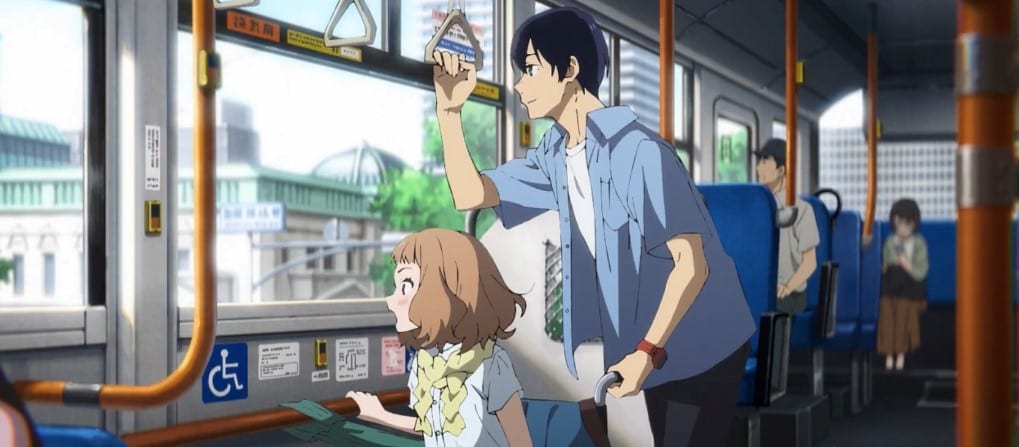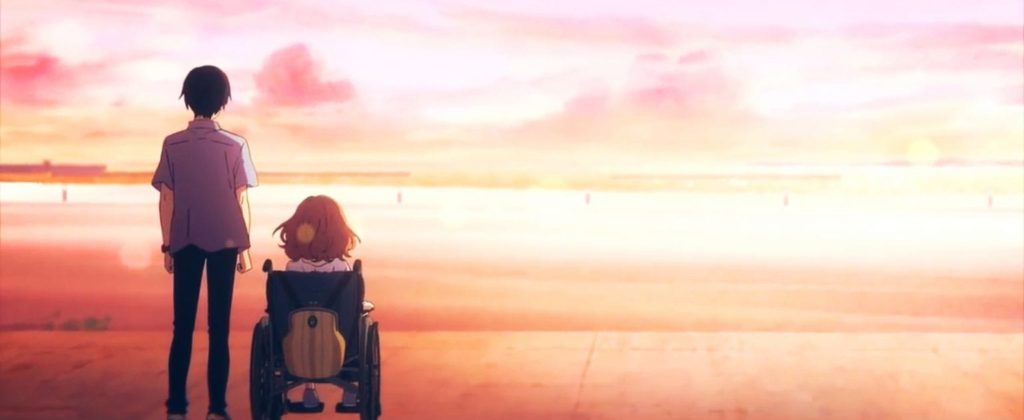
| Japan, 2020 | Slice of Life/Melodrama | Mainstream | Trailer |
I remember having seen the promotional poster for Josee some months ago, perhaps last spring. I believe I even commented it with my usual group of animation-loving friends. Ever since that first contact with the teaser I have wanted to watch this movie; because judging by the poster, a gray zone between a wholesome comedy and a melodrama could be vaguely grasped. Bones is the responsible studio for this movie, so that fact gave me a hint that it hadn’t to be a full melodrama (unlike, for example, PA Works).
Josee takes a well-known premise: the budding friendship/endearment between a disabled person and their caretaker. This, of course, leaves much place for establishing the inevitable associated plot archetype and other clichés we all expect: the initial distrust, the blooming friendship, the of-course-it-had-to-happen trouble, the consequenting separation and the touching reencounter, all of this well seasoned with good notes of the struggles and apathy of being disabled. Add to these concepts a good amount of anime teen romance premises, like the tsundere (initially mean but loving in the core) protagonist, the fateful encounters by bumping into each other in the streets, opposing love interests, trips to the sea/zoo/aquarium, that chaste and shy kind of endearment, etc. We the audience don’t expect less.
Furthermore, this movie achieves to trick its audience sometimes by hinting that the story would reach certain outcomes that smell like overused and no, no way this is really happening here too, but by doing elegant turns and twists, it manages to arrive to good ports in unexpected ways. Or, at least, it knows how stay in balance between “I am a romance anime, take this and love me” and “let’s try to do things differently this time” whilst being coherent with its conception, until the end.
However, Josee includes certain aspects, like the aquatic, sea-orientated leitmotif and the association of the disabled main character with being a “mermaid on the ground”, that leave a very nice aftertaste, especially in a visual term and as feel-inducing resources. It is also remarkable to notice how Japanese have a certain taste for odd French literature (previously seen with Maurice Maeterlinck in Haruhi Suzumiya), by tieing a nuance between Josee and the work of Françoise Sagan, one of the low-key standpoints of the French New Wave. I will need to dig deeper into this to understand its depth and how it is enrooted in Japanese pop culture.
So, expect with Josee a conventional slice of life on a half way between a melodrama and an endearing anime romcom. It plays its cards as it is expected, and whilst some facepalms are inevitable many times (especially if the audience consists of old geezers like me), it is a very sweet movie to watch. It feels good to just let our smiles, tears and sense of endearment fly with radiant wings in a sea of light, for some times.
